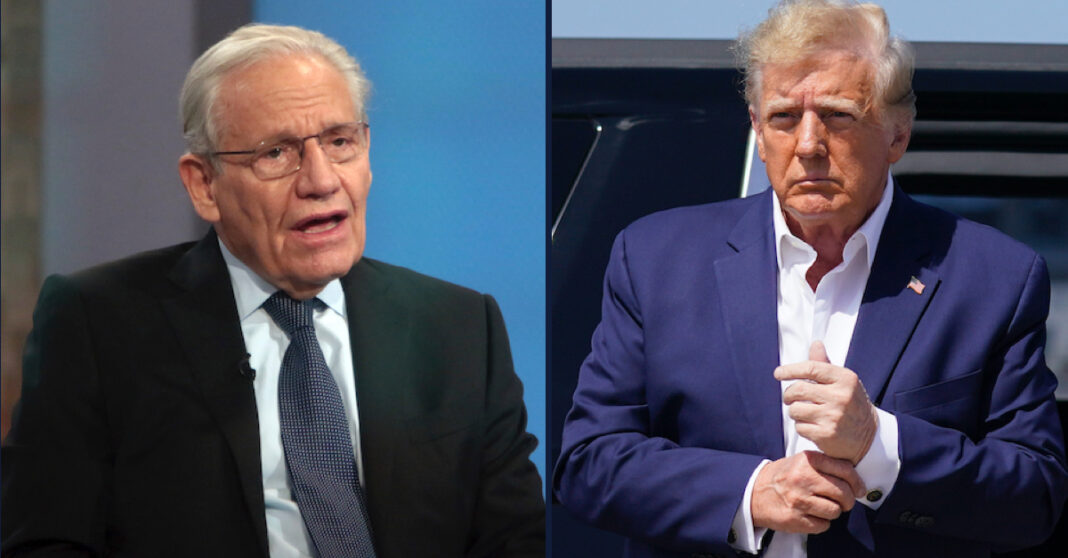A federal judge in New York has turned down Donald Trump’s request to move forward with gathering evidence in his copyright lawsuit against journalist Bob Woodward. The decision comes as Trump, now preparing to take office again, follows through on his pledge to take legal action against members of the media.
Judge Paul G. Gardephe, who was appointed by former President George W. Bush, wasted no time rejecting Trump’s request. In a handwritten note scrawled on top of the letter from Trump’s lawyer, the judge made his stance clear.
“The Court is at work on the outstanding motion,” Gardephe wrote. “To the extent Plaintiff seeks to embark on discovery before the motion to dismiss is resolved, that application is denied.”
This case began when Trump sued Woodward in January over the release of “The Trump Tapes: The Historical Record,” an audiobook based on 19 interviews that also formed the backbone of Woodward’s 2020 book, “Rage.” Trump claims Woodward had agreed to use the recordings only for the book. He accuses Woodward and publisher Simon & Schuster of illegally profiting from the interviews by releasing them as an audiobook without compensating him. Trump is demanding nearly $50 million in damages.
For a while, the case seemed to stall, but Trump ramped up efforts after his win in the November presidential election. His attorney, Robert Garson, urged the court to speed things along, arguing that delays could hurt Trump and the American public.
“President Trump is eager to protect his rights and ensure no similar violations occur during his upcoming term,” Garson wrote. He pointed out that Trump had secured a copyright for the tapes and accused the defendants of continuing to profit from them. Garson also mentioned Trump’s recent settlement in a defamation case, calling it a sign that others who violated Trump’s rights are being held accountable.
In the defamation case Garson referred to, Trump settled with a media company for an eight-figure amount. Legal experts have criticized the settlement, saying it might encourage Trump to pursue more lawsuits against the press.
The letter also included a jab at the defendants in Woodward’s case. Garson suggested they should take a lesson from the earlier settlement and own up to their actions, just as the other company had.
On top of this lawsuit, Trump has also filed another one—this time against pollster J. Ann Selzer and The Des Moines Register. Trump claims their reporting on 2024 election polls, which showed Kamala Harris ahead, amounts to election interference. Critics see this as yet another attempt to silence critical reporting by making it expensive to fight back in court.
Woodward, for his part, has denied any wrongdoing. He insists that Trump knew the interviews would be used in his book and says he made no promises beyond that. In court documents, Woodward’s attorney argued that no president before Trump has ever tried to claim copyright over interviews or demanded royalties for their publication.
The legal battle continues, but the judge’s latest decision ensures it won’t move forward just yet. As Trump presses forward with these lawsuits, the cases are drawing attention to his approach to dealing with the press and the limits of copyright law.
